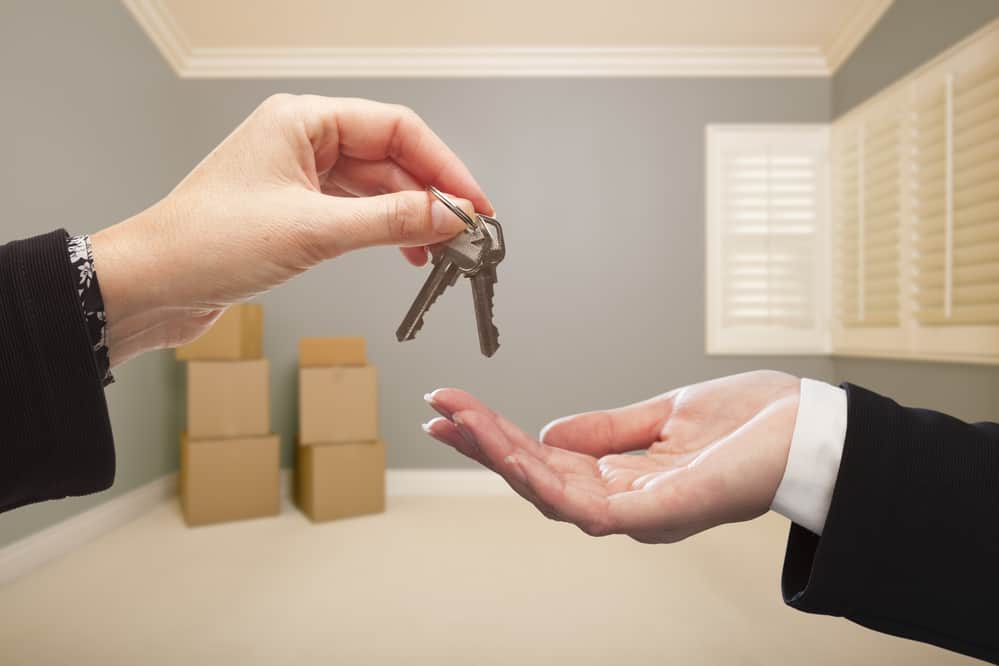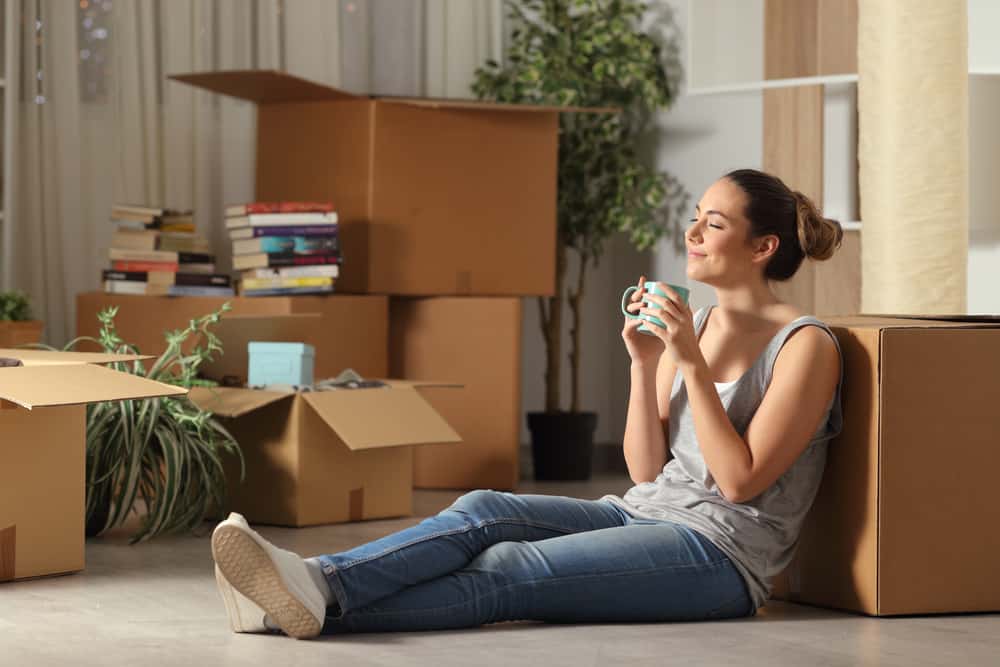How to Budget For Your First Apartment
THIS POST MAY CONTAIN AFFILIATE LINKS. MEANING I RECEIVE COMMISSIONS FOR PURCHASES MADE THROUGH THOSE LINKS, AT NO COST TO YOU. PLEASE READ MY DISCLOSURE FOR MORE INFO.
Your first apartment is a rite of passage. It’s an exciting time in your life, but it can also be expensive. If you’re not careful, you could easily blow your budget and wind up in debt.
But don’t worry – we’re here to help. In this article, we’ll give you tips on how to stay within your budget while still enjoying your new home. So read on and learn how to live within your means!
Initial Fees when Getting Your First Apartment
There are some initial fees that you need to be aware of when you get your first apartment. These could include:
- Security deposit – This is typically one month’s rent, but it could be more or less depending on your landlord and if you’re in an apartment complex or a house.
- First and last month’s rent – this is more common with house rentals than with apartment complexes.
- Application fee – Some landlords charge an application fee just to process your application. This is especially true for apartment complexes.
- Credit check fee – Most landlords will do a credit check to see if you’re financially stable enough to pay the rent. They may charge a fee for this service. Having a good credit score can lower the amount of your required security deposit.
Beyond those expenses and fees, there are some other expenses to keep in mind.
Moving Expenses
In addition to the initial fees, you’ll also need to budget for your moving expenses. These can include:
- Rental truck or moving van – Unless you have a lot of friends with trucks, you’ll probably need to rent a truck or van to move your belongings.
- Moving supplies – You’ll need boxes, packing tape, and other supplies to pack up your stuff.
- Gas – If you’re renting a truck or van, you’ll need to pay for gas to get to your new home.
- Tolls – If you’re moving out of state, you may have to pay tolls on

Pet Deposit
If you have a pet, you may need to pay a pet deposit when you move into your new place. This is in addition to your regular security deposit, and it’s designed to cover any damage that your pet might do to the apartment.
Related: 7 Pet Costs You’re Probably Forgetting
Renters Insurance
Renters insurance is a type of insurance that protects your belongings in case of theft, fire, or other damage. It’s not required by law, but some landlords require it as a condition of renting.
The cost of renters insurance varies depending on the amount and value of your property, how much coverage you want, and where you live. You can get quotes from several companies to compare rates and find the best deal for your situation.
Monthly Apartment Expenses
Now that you’re aware of the initial fees, let’s talk about your monthly apartment expenses. The two biggest expenses are rent and utilities.
Rent
Your rent is probably the biggest expense you’ll have to budget for. And it can be tough to find an affordable place to live, especially in a big city.
If you’re struggling to find an affordable place, there are a few things you can do:
- Look for apartments in less expensive neighborhoods.
- Look for apartments that include utilities in the rent.
- Look for apartments that offer discounts, such as for students or seniors.
Utility Bills
Rent isn’t the only thing you need to budget for – you also need to pay your monthly utilities. These can include electricity, gas, water, trash, and sewage.
And depending on your apartment, you may also need to pay for cable, internet, and phone service.
Pet Fees/Pet Rent
If you have a pet, you may need to pay pet fees or pet rent. This is in addition to your regular rent and can be anywhere from $25 to $50 per pet, per month.
Food
Of course, you also need to budget for food. Whether you cook at home or eat out, you need to make sure you have enough money to feed yourself and/or your family.
Furniture and Decorations
Another big expense when you’re setting up your first apartment is furniture and decorations. If you don’t have any furniture, you’ll need to buy or rent some. And if you want to decorate your new place, that will also cost money.
Here are a few ways to save money on furniture and decorations:
- Shop at thrift stores, garage sales, or online classifieds.
- Ask family and friends if they have any furniture or decorations that you can borrow.
- Look for coupons or sales at your local furniture or home décor stores.
Related: How to Save Money Decorating Your Home
Trash Fee
Some apartments charge a monthly trash fee, which is usually around $10. This fee pays for the apartment complex to have their trash picked up directly from your doorstep.

Cable and Internet
If you want cable and internet in your apartment, you’ll need to budget for that as well. Cable and internet can cost around $100 per month.
Of course, you can save money by only getting one or the other, or by using a streaming service like Netflix or Hulu.
Related: Making the Most of a $100/year Entertainment Budget
Parking Fee
If you have a car, you may need to pay for parking. This can be around $50 per month.
Some apartments include parking in the rent, so be sure to ask about this before you sign a lease.
Storage Unit Fee
If need extra storage, you’ll likely need to pay a monthly storage unit fee. This can range between $5 and $50 per month.
Laundry
Not all apartments come with laundry hookups or even if they have hookups might not have a washer and dryer. Meaning you may need to purchase or rent those appliances.
If you can’t afford both a washer and dryer – get the washer. You can always hang dry your clothes or take them to a laundromat to dry – drying is super cheap at a laundromat.
Here are a few other ways to save money on laundry costs:
- Wash your clothes in cold water whenever possible. This will save on both electricity and water usage.
- Use less detergent than the package recommends. You don’t need as much detergent as you think you do!
- Wait until you have a full load of laundry before running the washer or dryer. This will save on both energy and water usage.
The Bottom Line
As you can see, there are a lot of potential monthly expenses when you have your own place. Be sure to budget for all of these costs when you’re planning your first apartment budget.
Frequently Asked Questions
Do you still have questions about what expenses to take into account when figuring out your first apartment budget? We’ve answered the most common questions below.
What is a good budget for a first apartment?
There is no one-size-fits-all answer to this question, as everyone’s budget will be different and the city you live in can make a huge difference. However, a good starting point is $1,300 per month. This should cover your rent, utilities, transportation, and other basic expenses.
Of course, you may need to adjust this budget depending on your specific situation.
How can I save money on my first apartment?
There are a few ways to save money on your first apartment:
- Shop at thrift stores, garage sales, or online classifieds for furniture and decorations.
- Ask family and friends if they have any furniture or decorations that you can borrow.
- Look for coupons or sales at your local furniture or home décor stores.
- Only get cable or internet, or use a streaming service like Netflix or Hulu.
- Wait until you have a full load of laundry before running the washer or dryer.
Related: 5 Easy Ways to Save Money
What are some other expenses I need to budget for?
You’ll also need to budget for things like:
- Transportation (car payment, gas, insurance)
- Groceries
- Healthcare
- Taxes
- Car Insurance
- Cell Phone Bill
- Bills
- Other miscellaneous items
Is getting your first apartment hard?
There is no one-size-fits-all answer to this question, as everyone’s situation is different. However, some tips for making the process easier include:
- Start by looking for apartments that are in your budget.
- Read the lease carefully before signing it.
- Be prepared to pay a security deposit and first month’s rent.
- Have a list of questions ready to ask the landlord or property manager.
Apartment expenses list
If you’ve been thinking about moving into your own place but aren’t quite sure how much it will cost, here’s a simple way to figure out your monthly apartment expenses.
Add up everything you spend each month on your current living situation. Then add in the following categories:
- Rent
- Utilities
- Mortgage payments
- Water bill
- Phone bill
- CABLE TV
- Internet
- Gas
- Electricity
- Cleaning supplies
- Food
- Clothing
- Laundry
- Entertainment
Then total up your monthly costs to figure out how much you’ll need each month.
What’s the best way to find an apartment
This really depends on where you live (or want to live) and what your budget is, you can find apartment complexes easily with a google search. Or there are tons of home/duplex rentals listed on sites like Facebook, Craigslist, and even Zillow.
How Much of My Monthly Income Should Go Towards Rent?
The amount of your monthly budget that goes towards rent varies based on your location and income level. However, a good rule of thumb is that 30% of your monthly budget should go towards rent.

